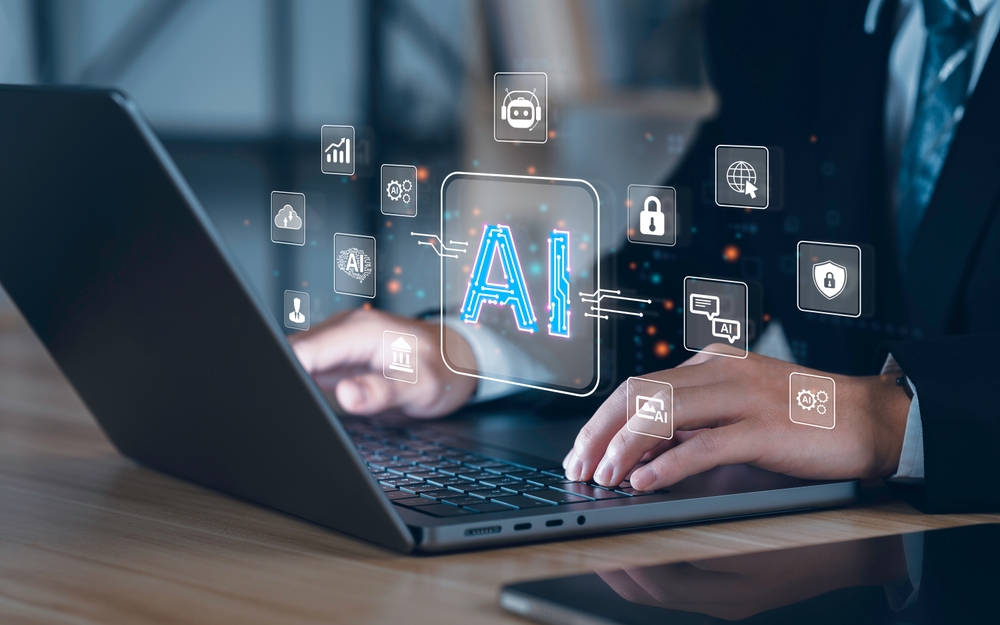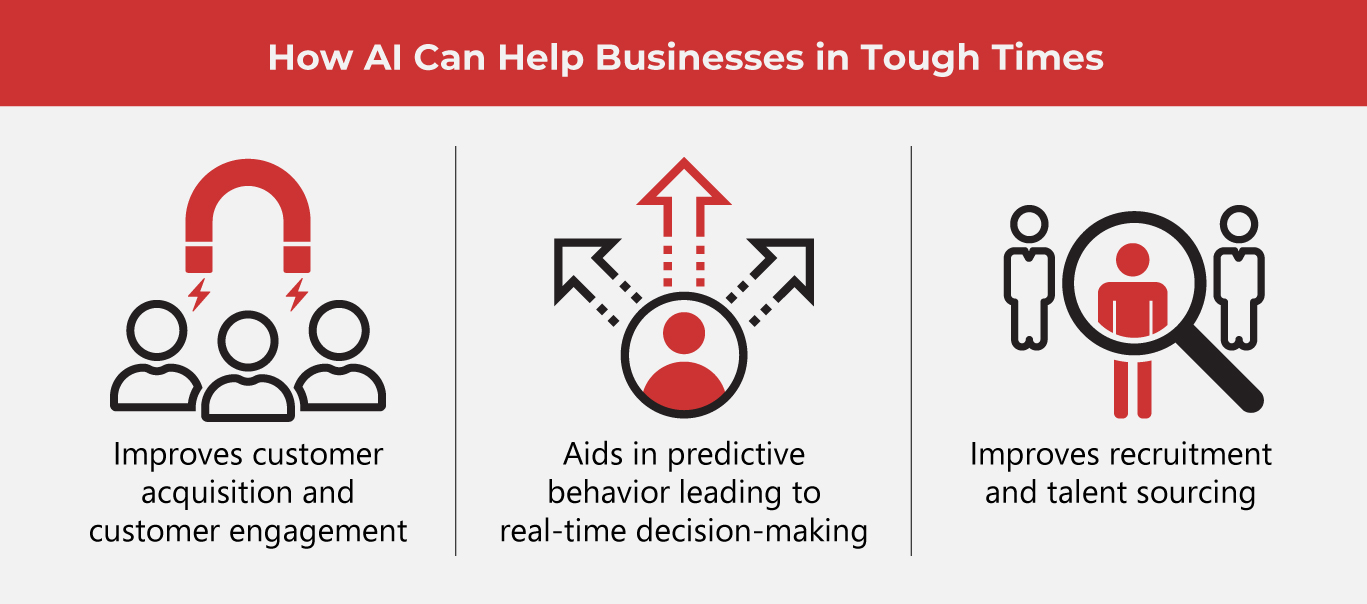Recession Concerns

Slowly but steadily recovering from the worst of a global pandemic, businesses around the world have had to contend with rising energy costs, shaky geopolitical developments, and the pressures stemming from climate change. It’s a mix of these factors that make the perfect recipe for a recession, but here’s how experts are saying artificial intelligence can help.
The certainty of uncertainty is a constant irony for every single living person on the planet. Here we are making the best out of the aftermath of a global pandemic, and the world keeps turning with new challenges for mankind to face. These are scary times, but exciting too because it’s during these times that mankind’s ability to adapt, survive, and thrive is unleashed.
In the context of businesses around the world, these trying times may have industry leaders bracing themselves for another recession. At least, pundits and experts have been preparing worst-case scenarios in case the current downturn in investments and therefore, profits, lead to something more precarious.
This downturn can be observed in many areas of businesses—from supply chain management to digital healthcare.
For example, an investment report from Rock Health shows that funding for MedTech declined in 2022 to $15.3B from 2021’s $29.3B. How did this happen? Their research shows that investors have become cautious because of the uncertainty in some global markets.
(Read also: It’s MedTech’s Time to Shine)
It’s a scenario that not only impacts MedTech or digital healthcare, but insights from this sector mirror many more coming from a larger business perspective. It’s a perspective that recognizes and includes how artificial intelligence, machine learning, big data, and IoT can help different business sectors stay afloat during trying times.

Akaike AI cites several ways in which AI can enhance business in this post-pandemic era. These ideas include:
Improvement of customer engagement and acquisition of new customers
A study from Business News Daily showed that a mere 5% increase in customer retention can lead to 25-95% profitability. Making a small yet significant effort in retaining customers through engagement can reap huge benefits for a business. Customer retention means establishing rapport and strengthening tenuous relationships with them. Engagement is at the forefront of this retention, and with the help of AI, businesses can boost this engagement with their customers. AI can make interactions more personalized for each customer, which makes it more effective. Though bots have not yet achieved the same human feel when it comes to customer service, they have become necessary in basic digital transactions and front-facing troubleshooting steps with customers.
Predictive behavior analytics and real-time decision making
Akaike AI defines predictive analytics as a process involving statistics, data mining, and modeling to make predictions so that the best decisions can be made. Think of it as having a super-efficient manager that can anticipate your needs and act on them faster than you can even articulate them. Then, multiply that by how many customers need this type of super-efficiency for every transaction they make digitally. AI can handle a gargantuan amount of data carrying numerous needs and can act on them in real time, providing timely actions that improve customer interaction and engagement.
Better recruitment and talent sourcing
The apprehension surrounding AI has always been connected to technology eventually taking human jobs and replacing humans at work. We need to remember that AI still needs humans working alongside the technology to make it work. In this area, AI can also assist in improving talent acquisition, recruitment, and sourcing. It’s very common for companies to post job ads for recruitment. Today, AI can help speed the hiring process along. Some companies already use AI-based recruitment tools to seek qualified talent. This has now become part of the screening process for some companies and has made it easier for human beings who work in HR to do their jobs better.
TechHR enumerated a few ways in which AI will impact businesses in the foreseeable future:
AI will speed up the introduction of new technology
According to TechHR, instead of slowing down new technology, a recession will speed things up. Experts project that there will be a concentration of “conversational AI” or AI that simulates human conversation. In short, chatbots. This opens more opportunities in business sectors that cater to social apps. Perhaps the step in this direction comes as no surprise since depression is a very real consequence of a recession. Others might laugh, but dire situations can make plenty of people even more lonely and crave attention, interaction, and even care.
Those who have invested in AI will benefit the most.
The pandemic and the health guidelines implemented worldwide have pushed many businesses to adopt AI early. Social distancing created new demands for transacting remotely, simple interactions that used to be done face-to-face now needed a digital intermediary, and our dependence on contactless transactions continued well after restrictions have been lifted.
Companies that invested in AI technology three or two years ago will benefit the most from having it, already being familiar with it, and integrating the technology into their daily operations. Meanwhile, business who have not yet embraced the technology find themselves scrambling to keep up.
As one of the Top 19 EMS companies in the world, IMI has over 40 years of experience in providing electronics manufacturing and technology solutions.
We are ready to support your business on a global scale.
Our proven technical expertise, worldwide reach, and vast experience in high-growth and emerging markets make us the ideal global manufacturing solutions partner.
Let's work together to build our future today.
Other Blog




